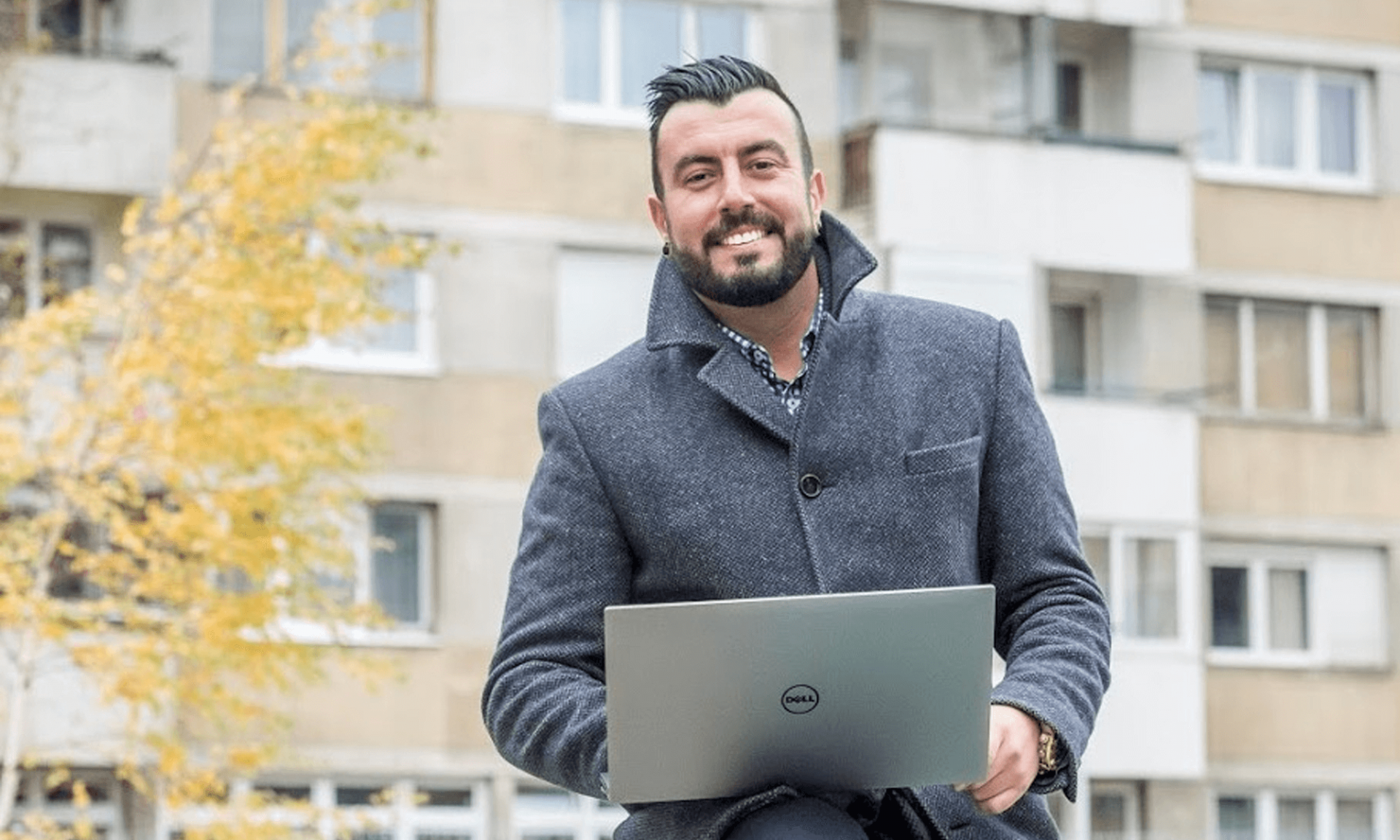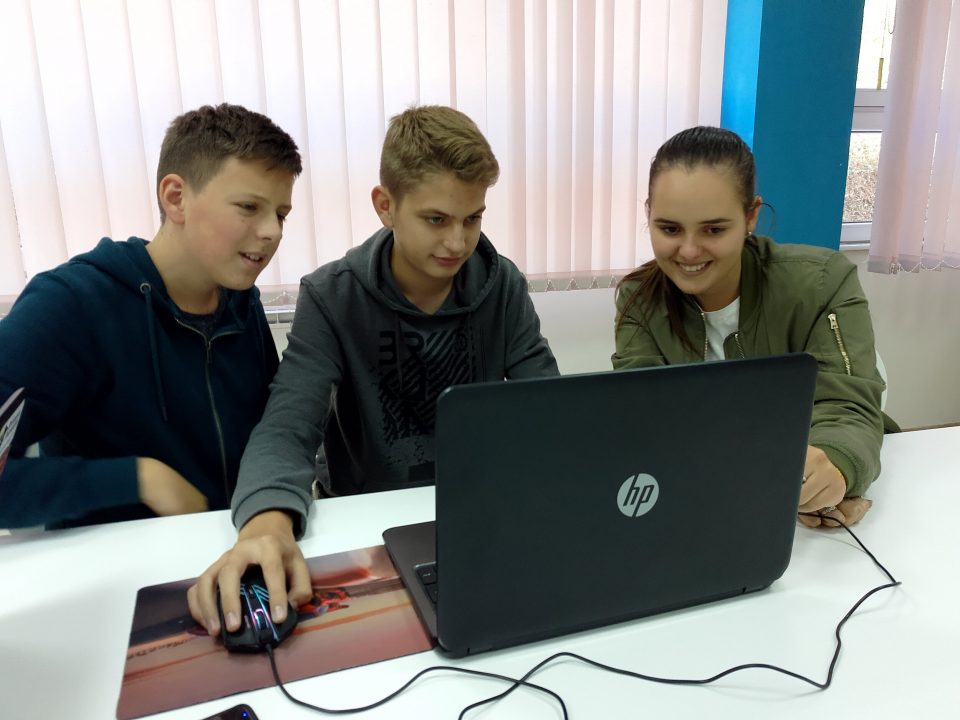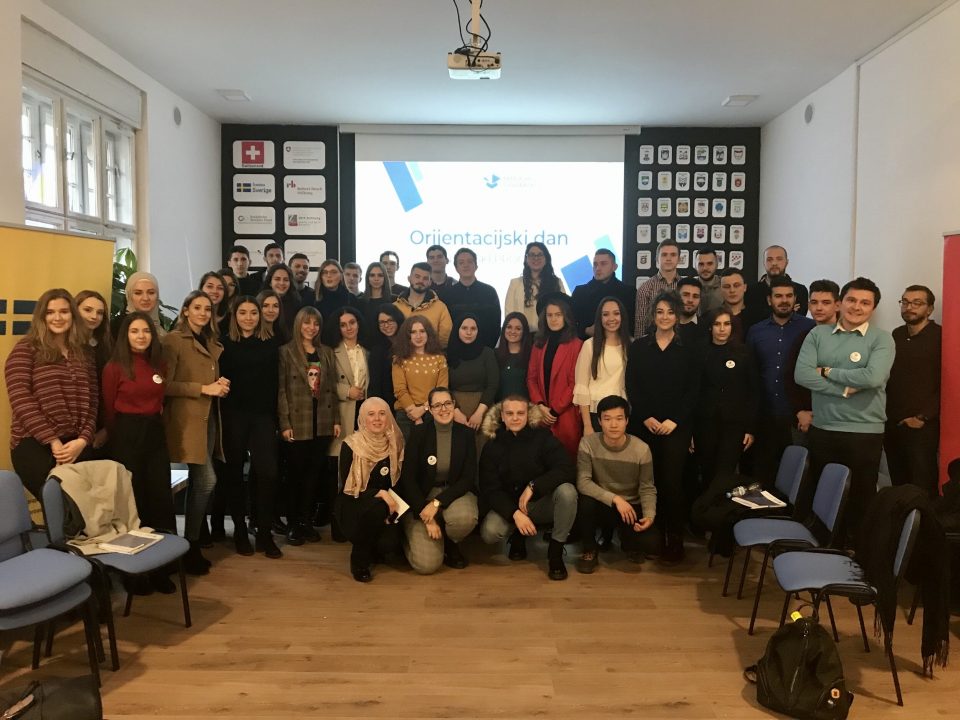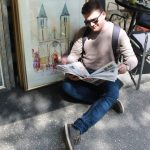
In a recent interview with Balkan Diskurs, Edhem Custovic discussed the recent establishment of the BH Futures Foundation (BHFF) and the launch of the Futures MakerSpace center in Srebrenica.
It was the beginning of the war in Bosnia and Herzegovina (BiH) and Edhem “Eddie” Custovic was only 7 years old when he left Tuzla and arrived in Australia with his parents and brother. As a child, he was always interested in science and innovation and now, as an adult, he has come up with several of his own innovations, one of which has contributed to the reduction of Australian infant mortality rates. His achievements have reached a global scale, and now, he wants to focus his efforts on BiH and helping his home country become an example of successful development.
In a recent interview with Balkan Diskurs, Custovic discussed the recent establishment of the BH Futures Foundation (BHFF) and the launch of the Futures MakerSpace center in Srebrenica.
BD: The BH Futures Foundation (BHFF) helps young people by offering educational opportunities and mentorships. How difficult was it for you to reach young people in BiH when you first started your foundation?
Custovic: Young people are eager for knowledge, especially if they have the opportunity to learn from professionals who have built impressive careers, and we provide access to such resources for free through our foundation. The youth have recognized our idea to “spread knowledge for a better BiH” and have been enthusiastic to join us in this endeavor. We really haven’t had any problems motivating them because young people are searching for opportunities to improve and the motivation to make a living off of their knowledge. If they work hard to achieve it, success is guaranteed. Young people want security; they need to be able to turn to someone for advice, which is one thing our mentors provide. When you selflessly share knowledge, people want to be a part of it.
In addition, a good mentor can play a very important role in a young person’s success. Mentors have shaped my career from high school onwards. Young people should work to navigate their careers through the advice of people who have already gone through the things that lie ahead of them. Our goal is to guide young people down the right path towards creating successful careers. We also want to create an expansive network of young people so that those who acquire knowledge can pass it on to others.
BD: Do young people see their futures in BiH and how much does BHFF help them to stay in their homeland?
Custovic: We try to awaken patriotism in all the young people who participate in our events because they are the better future for BiH and we tell them that very openly. We offer them the opportunity to enhance their knowledge in countries around the world and to learn from world-renowned experts. However, we also advise them to transfer their knowledge back to their homeland.
We help them build connections, develop their start-up ideas, travel, and learn so that they can put their ideas into action back at home. Engineering is one such job that allows you to work for companies around the world from the comfort of your own home. Our experience has shown that BiH has many young people who love these types of jobs.
BD: You recently opened a technology center (Futures MakerSpace) in Srebrenica. Can you tell us more about this project?
Custovic: This, in fact, is a story of how one Facebook message and one visit can initiate great social action that can benefit a whole region. Last year, I was contacted by Valentina Gagic-Lazic from Srebrenica via Facebook. She praised me for the work we are doing through BHFF and expressed her desire to meet. At the end of November, Valentina came to our academy in Tuzla where she was further introduced to our work. She said to me that day: “This is fantastic. You have students from Banja Luka, Mostar, Sarajevo, Tuzla, and Zenica all bound together by common goals. Would it be possible for you to come to Srebrenica with your students to help motivate our young people?” Those few words from Valentina were enough for me and I agreed immediately. A week later, along with our students, I visited Srebrenica and talked to the young people there.
What made me particularly happy was the fact that a large number of Bosniak and Serb children arrived that morning from Bratunac, Srebrenica, and other places. They were united by a desire for knowledge and progress. The Futures MakerSpace center is a place where high school students from Srebrenica and the surrounding areas can engage in technology, have access to some of the same resources that peers in Western countries have, and develop projects. Our goal is not only to educate our country’s young people but to work towards reviving the local economy (agriculture, culture, tourism).

BD: Srebrenica is known to many people for one reason/date, why did you decide to open Futures MakerSpace in Srebrenica, in particular?
Custovic: Your question is also the answer. It’s because this city, which survived such horrors at the end of the last century, is remembered only on the 11th of July. The name of our foundation (BH Futures) is meant to represent a better future not just for Sarajevo, Mostar, Banja Luka, Tuzla, but for all of BiH. That’s why we could not bypass an important place like Srebrenica.
It is our moral and human duty to provide Srebrenica’s youth with the opportunity to learn and socialize together, as well as to seek and build better interpersonal relationships through educational opportunities. It turns out that we made the right move by opening the MakerSpace center because it is now a place where young people of different nationalities are learning together. That’s a goal we want to achieve and strive for. A multicultural and smart BiH is the key to a better future. Of course, we must not forget the horrific suffering that happened to people of Srebrenica. If we can face the past, we will be ready to move forward and not allow such a thing to happen ever again, to anyone.
BD: How does Futures MakerSpace enable young people to improve their local community and how do you connect them with experts?
Custovic: We have equipped the center with computers, information technologies, 3D printers, electronic development boards, drones, and various other tools that young people can use at any time with one exception: the tools must be used for learning and helping their local communities. Our center will be digitally connected to our all of our BiH partner organizations, including JSGuru Kliker School in Banja Luka, DKR Robotics Center in Tuzla, and SPARK in Mostar.
An activity plan has already been drawn up with the goal to bring excellent scholars, volunteers, and students to Srebrenica every weekend who will work with young people, the local community, and local businesses. We want Srebrenica to be filled with activities that encourage young people to come and stay in this beautiful area.
BD: How do we stop young, educated people and professionals from leaving Bosnia and Herzegovina?
Custovic: It is very difficult to stop them unless we change the system and throw out all the things that are wrong with it. The general atmosphere needs to shift and knowledge needs to be more valued and rewarded. We aim as a foundation to start with a series of small steps; to change the lives of a select number of people, at first, and then continue to expand our reach in hopes of influencing this negative trend for the better.
BD: What are BHFF’s plans for the future?
Custovic: Over the last four years, we have succeeded in making positive changes to dozens of young people’s lives in our country. By giving them access to knowledge, technology, and global leadership – our three pillars of action – we have shown them that much can be achieved in a small country like BiH and that if you work hard enough you don’t have to go somewhere else. The world can, instead, come to you.
In the upcoming period, we plan to expand our activities to include as many students as possible. An outstanding example of this is the new mentorship program we launched in conjunction with the MarketMakers initiative, an organization that aims to create meaningful and decent jobs for young women and men in BiH. Through this partnership, we will provide mentoring to 140 high school and college students across the country. This is a big step forward because, until now, we were only able to mentor around thirty students per year.

We also plan to continue our other core activities which include opening additional MakerSpace centers throughout BiH, running the Arduino Outreach Program for high school students, delivering webinars, and offering a variety of other educational and professional development opportunities.
BD: What is your final message to our young people?
Custovic: I would like to tell our young people that they must believe in themselves and invest in expanding their knowledge, which is the only investment that is always worth making. Let them join us and we are sure that, with our mentors, they will be motivated to make a success story out of their lives.
This publication has been selected as part of the Srđan Aleksić Youth Competition, a regional storytelling competition that challenges youth to actively engage with their own communities to discover, document, and share stories of moral courage, interethnic cooperation, and positive social change. The competition is a primary component of the Post-Conflict Research Center’s award-winning Ordinary Heroes Peacebuilding Program, which utilizes international stories of rescuer behavior and moral courage to promote interethnic understanding and peace among the citizens of the Western Balkans.
The Balkan Diskurs Youth Correspondent Program is made possible by funding from the National Endowment for Democracy (NED).






